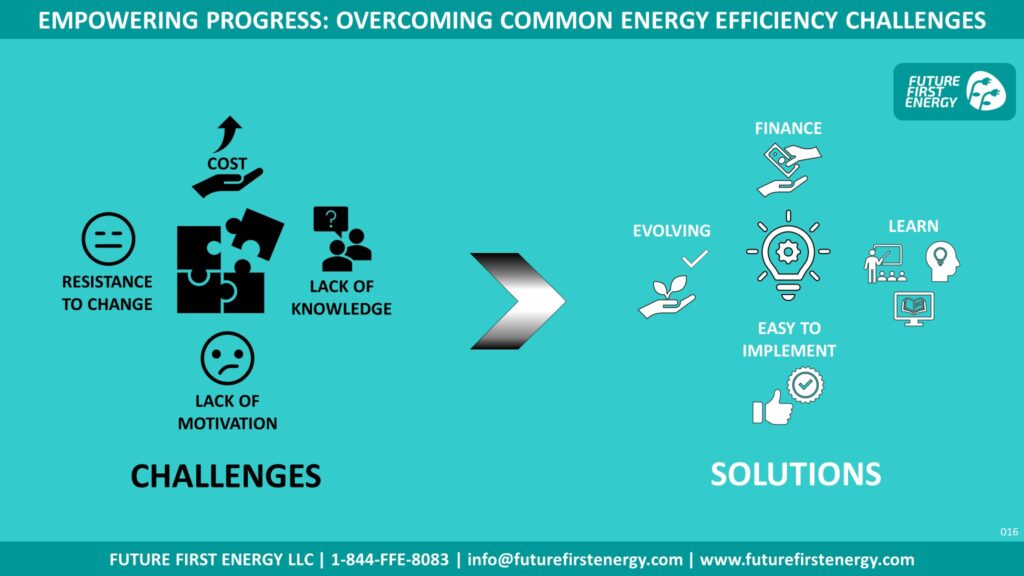In the quest for a more sustainable future, energy efficiency stands as a cornerstone of positive change. However, the path to energy efficiency is not without its challenges. From outdated infrastructure to financial constraints, these obstacles can often hinder progress. In this article, we’ll explore some of the common energy efficiency challenges faced by individuals and organizations and shed light on innovative strategies to overcome them. Let’s join forces to empower progress and drive sustainable transformation. 🌱💼💡
#EnergyEfficiency #Sustainability #CollaborativeChange #InnovationsForTomorrow
1. Aging Infrastructure: Pioneering Modernization Outdated equipment and infrastructure pose a significant hurdle to energy efficiency. Embracing modern technologies, such as smart meters and energy management systems, can empower organizations to monitor energy usage in real-time and identify areas for improvement.
2. High Initial Costs: Unlocking Long-Term Savings Investing in energy-efficient technologies may require an initial financial commitment. However, it’s essential to recognize that these upfront costs often translate into substantial long-term savings through reduced energy bills and operational expenses.
3. Lack of Awareness: Igniting the Flame of Knowledge Many individuals and businesses are unaware of the benefits and opportunities of energy efficiency. Educational campaigns, workshops, and online resources play a pivotal role in raising awareness and inspiring proactive steps towards energy conservation.
4. Behavior Change: Cultivating a Culture of Efficiency Changing energy consumption behaviors requires a shift in mindset and practices. Implementing employee training programs and engaging in energy-saving competitions can create a culture of energy consciousness within organizations.
5. Complex Regulations: Navigating Compliance Navigating through complex energy regulations and standards can be overwhelming. Seeking guidance from energy experts and consultants helps organizations ensure compliance while capitalizing on available incentives and benefits.
6. Lack of Data: Data-Driven Decision Making Without accurate energy usage data, making informed decisions becomes challenging. Installing energy monitoring systems and conducting regular energy audits provide valuable insights for optimizing energy efficiency strategies.
7. Resistance to Change: Overcoming Inertia Resistance to change can hinder the adoption of new energy-efficient technologies. Effective change management, leadership buy-in, and showcasing success stories can inspire enthusiasm and overcome inertia.
8. Limited Resources: Maximizing Impact Smaller organizations or individuals may face resource limitations. Prioritizing energy-efficient projects based on potential impact and return on investment allows for strategic allocation of resources.
Conclusion: Fueling Transformation Through Collaboration
While energy efficiency challenges may seem daunting, they are also opportunities for growth and innovation. By addressing these challenges head-on and collaborating to find creative solutions, we can pave the way towards a more sustainable and energy-efficient future. Let’s empower progress, overcome obstacles, and collectively drive the positive change needed for a greener and brighter world. 🌟🌍💚
Share your thoughts and experiences on overcoming energy efficiency challenges in the comments below. Together, let’s inspire and empower a global movement towards a more sustainable and energy-efficient tomorrow.
